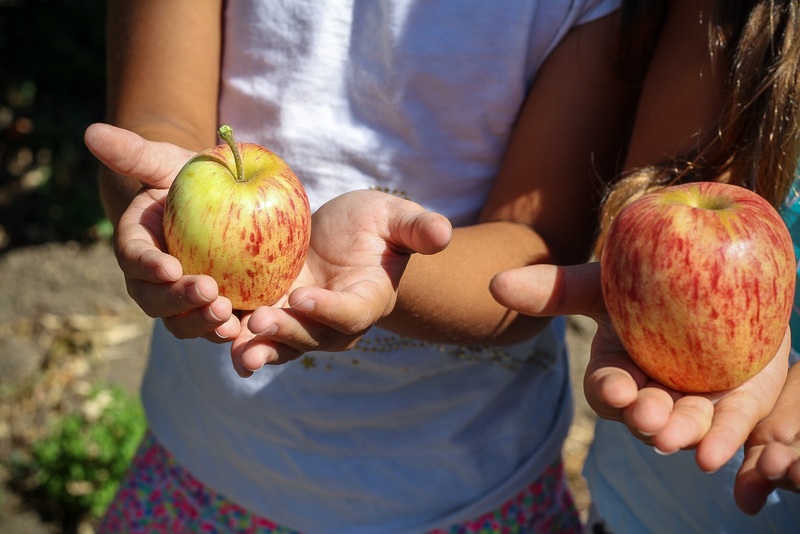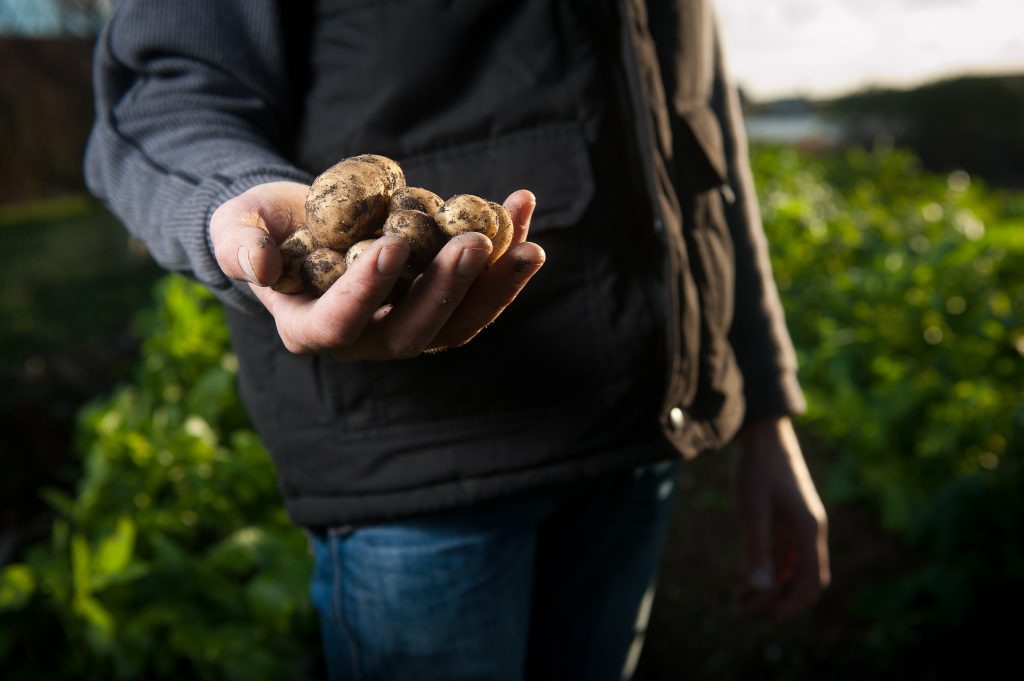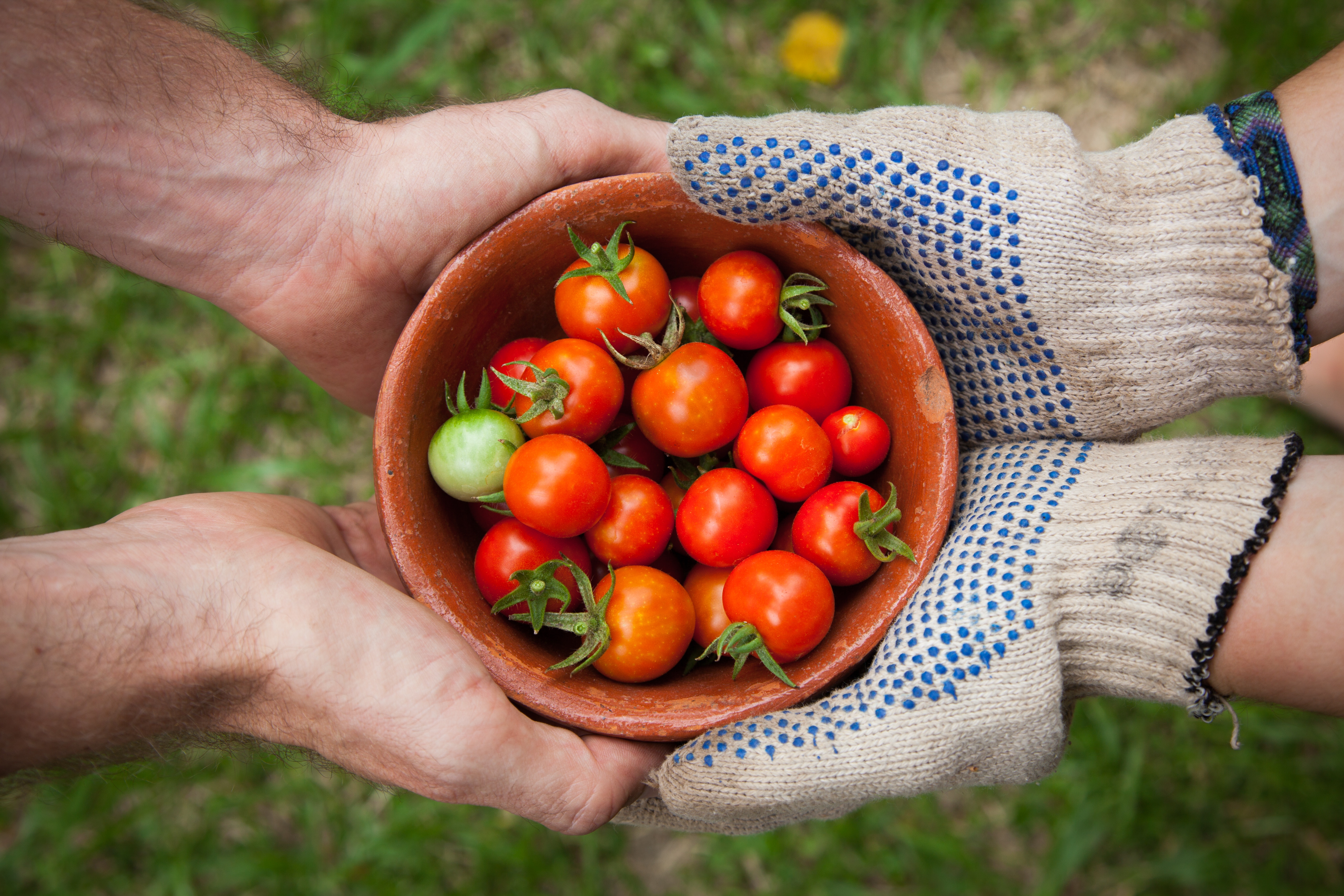8.4million people in the UK regularly go hungry with pressures on farming making us increasingly reliant on importing food. This makes healthy food expensive and inaccessible to many people, however a rights-based approach to food could mean a food system that works for everyone – consumers, suppliers and producers.
A rights-based approach to food that considers the social and environmental implications of the food system could improve the quality of life for millions of people in the UK. It would also fulfill the UK’s commitment to international conventions on human rights and climate change, including the Paris Agreement, and help address global inequalities, which leaves millions hungry while so much food is thrown away.
Here’s how a holistic rights-based approach to food could significantly improve workers rights and protect the environment, as well as challenges that lie ahead.
Workers Conditions and Pay Would Improve
 Credit: Spencer Pugh Unsplash
Credit: Spencer Pugh Unsplash
Food workers face many barriers in achieving their right to food despite international human rights law recognising their rights to decent work, adequate living conditions, social protections and the right to food. These are outlined in article 25 of the Universal Declaration of Human Rights and article 11 of the International Covenant on Economic, Social, and Cultural Rights.
The rates of injury and fatalities make agriculture the most unsafe industry in the UK.
In the UK, 13% of the population currently works in the agri-food sector, including food growing, production and retail. A recent report by the Gangmasters and Labour Abuse Authority , The Nature and Scale of Labour Exploitation, found there are a wide spectrum of labour abuses in the agricultural, food processing, and shellfish processing sectors.
In agriculture, some workers – mainly from Romania and Bulgaria – are putting in 15 hour days at less than minimum wage and living in ‘horrific’ conditions. Even when working conditions are not horrific, agriculture continues to be low paid and dangerous – in fact the rates of injury and fatalities make it the most unsafe industry in the UK.
Lower wages, reduced employment rights, falling health and safety standards, increased job and housing insecurity.
Tractor driver
An agriculture worker paints a grim picture of working in agriculture in a report by food alliance Sustain, Why Would Anyone Want to Pick Our Crops?’ A tractor driver felt his employment was precarious and characterised by “ever lower wages, reduced employment rights, falling health and safety standards, increased job and housing insecurity.”
Valuing farm workers is key to having a fair farming system and all workers should be paid the Living Wage as a minimum. However in 2013, the Government scrapped the Agricultural Wages Board in England and Wales. This board was a key tool for farm workers to collectively negotiate pay rises with their employees.
A survey by Unite the Union just one year after the board was scrapped found that only 56% of workers had had a pay rise since the abolition took effect, despite them all being due a pay rise that would have happened if the board was not dissolved.
Limited collective bargaining was raised by the UN Special Rapporteur on the Right to Food, Hilal Elver, as one of the barriers facing agricultural workers.
Protecting the Environment and Food for Future Generations
 Credit: Pxhere
Credit: Pxhere
The right to food also means ensuring the right to food for future generations, but, industrial food and farming methods are using natural resources such as soil and water at an alarming rate.
In order to end hunger and ensure the right to food for all, more must be done to protect the environment. Our current food system has a major impact on the climate change. Research that looks at the full impact of the global food industry, including transport, packaging, and waste, estimates that this sector is responsible for around 40% of worldwide greenhouse gas emissions.
The global food industry is responsible for around 40% of worldwide greenhouse gas emissions.
If we are to tackle climate change effectively we need to address the role that the food system has. Over the past century, the conventional model of farming has relied heavily on mechanical and chemical technologies to produce more food.
This has tended to come from a highly simplified one-dimensional view of agro-ecosystems whereby the individual parts; their genetics, agronomy, soil nutrients and pests, are regarded independently. This has led to imbalances in the ecosystems and the social and environmental dislocations that we are seeing today, with wildlife under threat and declining biodiversity, and high rates of suicide among farmers globally and in the UK too.
Agroecology on the other hand goes beyond this. It emphasises the inter-relatedness of all agro-ecosystem components and the complex dynamics that drive productivity, stability and resilience.
One key example that illustrates the toll that the current global farming system is having on our environment is soil. Soil is often taken for granted yet it is the source for over 99% of all animal and human food calories.
Soil is the basis for food, feed, fuel and fibre production. Without soils we cannot sustain life on earth.
Maria Helena Semedo, United Nations Food and Agriculture Organizations
Globally, more than half of all soils in the world are now classified as degraded. This damage is largely the result of industrial farming practices, over-grazing and global warming.
Soil degradation is a global issue affecting billions worldwide, and pushing conflict and migration. According to scientists, the UK only has enough soil left for an estimated 100 more harvests.
The Deputy Director General of the United Nations Food and Agriculture Organizations, Maria Helena Semedo, has stressed the importance of soil to humanity. “Soil is the basis for food, feed, fuel and fibre production. Without soils we cannot sustain life on earth and where soil is lost it cannot be renewed on a human timeline.”
Legislation Required to Overhaul the Food System
 Credit: Producteurs Locaux Unsplash
Credit: Producteurs Locaux Unsplash
Currently despite the UK being a signatory to a number of international standards that protect our right to food, the standards have not yet been incorporated domestically. So in order to establish our right to food robust legislation is required to allocate responsibilities and establish principles and frameworks whereby rights can be upheld.
Legislation is one of the key ways to join the dots in our complex food system, explains Vicki Hird, Sustainable Farming Coordinator for the Sustain alliance. “People’s safety, food access and choices are directly affected by the decisions made all along the food supply chain, as are considerations such as supply chain fairness, working conditions, licensing of technologies and animal welfare.”
An Agricultural Bill is currently being debated in Westminster. This Bill is the first attempt in many years to define the UK’s food and farming policy, but many campaigners say that it does not go far enough in its protections of the environment and workers.
And then there’s Brexit
 Credit: Elionas2 Pixabay
Credit: Elionas2 Pixabay
Brexit is looming large over agriculture in the UK and our access to food. The UK produces just 50% of its food and the rest is imported. It is essential that trade deals should strengthen the delivery of high standards of production, not weaken them.
Due to Brexit there will be a need to renegotiate trade and agriculture deals. If this is the case then our government should include a clause that states that imports need to meet UK production standards on targets including antibiotic use and pesticide controls in order to protect consumers in the UK.
The National Farmers Union found that out of 60,000 seasonal workers picking the UK’s fruit and veg less than one percent were British.
Campaigners and MPs are worried that a post-Brexit UK-US trade deal could open the floodgates to contaminated food. Brexit also raises the very real concern that if there are restrictions on EU and EEA migration to the UK then who will pick our food? The National Farmers Union found that out of 60,000 seasonal workers picking the UK’s fruit and veg, less than one percent is British.
In the battle for establishing the right to food and a more balanced food system, Brexit means access to cheaper, good quality food is likely to become more difficult in the short to medium term.






